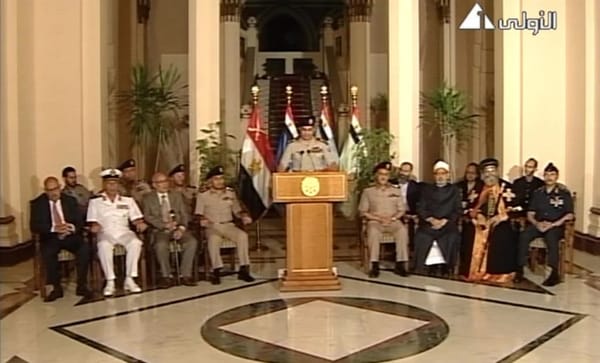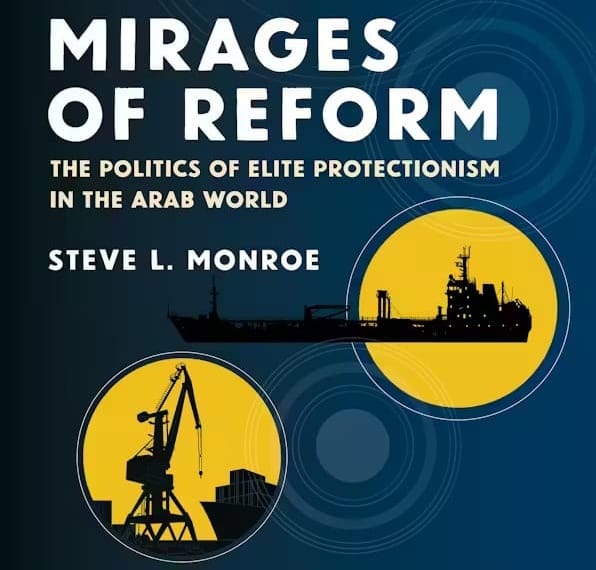Islamic Media in Egypt

Book review essays and podcasts about new publications on the Middle East are a regular feature of Abu Aardvark's MENA Academy.
Two longtime areas of my research focus are Islamist movements and Arab media. Especially before the 2011 Arab uprisings, I published regularly about the transformative effects of Arab satellite television stations like Al-Jazeera and social media such as blogs and Twitter. I also published a lot about the Muslim Brotherhood in Egypt (and beyond Egypt). So I couldn't have been more excited to receive a copy of Yasmin Moll's The Revolution Within: Islamic Media and the Struggle for a New Egypt (Stanford University Press, 2025) – a definitive account of a satellite television and social media driven Islamic movement which unfolded in Egypt around the same time I was doing that research.
It did not disappoint. Moll, an anthropologist at the University of Michigan, has written a definitive, insightful, and pathbreaking political and social ethnography of Egypt's "New Preachers" and Iqraa, the first Islamic satellite television station of its kind. It traces the origins and explosive rise of this new, self-consciously Islamic media, placing it within Egypt's complex Islamic field of competing Muslim Brotherhood, Salafi, traditional and piety movements. It shows how New Preachers such as Amr Khaled, Mostafa Hosny, and Moez Masoud became breakout celebrities, in part by adapting American and global tropes and modalities of media evangelicalism. And, finally, it shows how this new Islamic trend navigated the 2011 revolution, both institutionally and as individuals. The Revolution Within delivers a riveting portrait of a religious trend which has too often been dismissed as politically insignificant and neglected in favor of political movements such as the Brotherhood and Salafis.
Several key themes and arguments of the book especially piqued my interest. First, Moll offers fascinating insights into the television station Iqraa itself. She places its launch decisively into the broader regional satellite television revolution driven by al-Jazeera, and shows how its founders were directly inspired by al-Jazeera's ethos and aesthetics. In particular, she demonstrates that al-Iqraa intentionally set out to emulate al-Jazeera's "voice of the public sphere" model by hosting representatives of all the major Islamic trends rather than presenting only one message. Where Salafi TV stations only featured Salafis, Iqraa would feature Muslim Brothers, Salafis and traditional al-Azhar scholars alongside their signature televangelists.
Politically, that represented an attempt to capture and define wasatiyya, the 'centrism' or 'moderation' claimed by most Islamic trends. Critically, that 'moderation', she insists, did not mean the kind of depoliticization or secularization which many excited American think tankers wanted to project onto personalities like Amr Khaled as a vehicle for promoting democracy or combatting violent extremism (I first met Khaled at a Brookings Institution's US-Islamic World Forum; Khaled, and the other major figures in the trend, did oppose extremism and support democracy, but for their own reasons).
Second, she shows how Iqraa sought to present an Islamic media which wasn't just about Islam. Where other religious programming often just featured Islamic authorities giving fatwas and sermons, this station sought to model an Islamic ethos through non-Islamic programming such as children's shows, reality TV, and entertainment. The most successful of these were the lifestyle programs hosted by Khaled, Hosny and Masoud which featured engagement with ordinary Egyptians and offered not only religious but also lifestyle advice. This was not, she stresses, really the "Islam Light" that critics often portrayed it as – the message, for the most part, was not about wearing religion lightly or not taking it seriously, but rather about how to be a good Muslim in a modern society, which could mean enjoying popular music, movies and sports. It did have the "neoliberal" quality highlighted by some academic critics of the trend, in that it prompted viewers to pursue meaningful jobs and to embrace consumerism, though its advocates would push back on the implied negative implications of that label.
Third, Moll explores the political ramifications of this Islamic trend. The Egyptian revolution broke out midway through her field research, allowing her to observe in real time how the producers and star personalities navigated rapid political trend. In her telling, Iqraa institutionally decided to not endorse candidates or back a specific political line for fear of being seen to conflate "Islam" with one political party or movement. But individual New Preachers joined Tahrir Square early on, and used their vast social media and public presence to advocate for the revolutio and democratic change (though some of them, like Khaled – and many, many other Egyptians of all political and religious orientations – struggled to navigate the turbulence and polarization of the post-2011 transition).
Listen to Yasmin Moll talk about The Revolution Within on The Middle East Political Science Podcast:
Stay tuned and subscribe to receive my upcoming posts on events and issues in the Middle East and in the academy.



